Spotlight Prairie Hill
Spotlights
In this Spotlight, we turn our attention to Mandie Cody Schadwinkel, who helps run an inspiring and unique Montessori school, called Prairie Hill, located just outside of Lincoln, Nebraska.
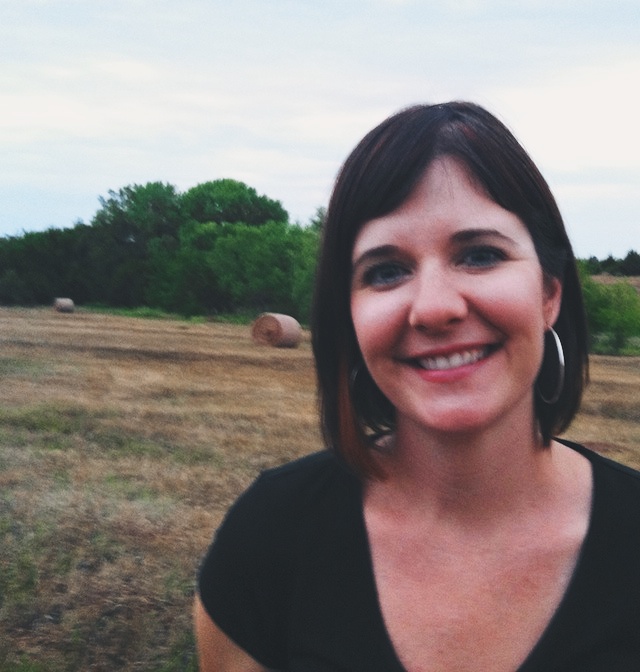
Q: Can you tell us a little bit about your work at Prairie Hill?
A: I am a co-director of the primary community and am the Education Programs Coordinator for the school as well.
Q: What makes Prairie Hill so unique and such a silver staple of Montessori in the Midwest?
A: Since PRAIRIE HILL was founded in 1981, it has been committed to offering education in an atmosphere that promotes individual growth as well as caring for others and the earth. It has lived out that mission every day since.
The foundation of that philosophy as well as incredible vision and work from the founders, Lyn and Jim Dyck, lead the way for all of the children, staff, and parents to see what amazing things happen when children are exposed to and work together within their natural environment and a Montessori community.
The Montessori teachers have maintained that vision and action by working closely with the administration and board of directors to provide enriching experiences for children and adolescents year round.
Our parents are very involved and are committed to being a “village” of support and care for one another. Alumni come back year after year to be a part of our family workdays, and they volunteer and work at our summer camp programs. The people on staff are passionate, kind, well trained, and talented.
All of this adds up to mutual feelings of thanksgiving and respect for the value of providing a learning and caring environment to the plants, animals, and people on this Montessori farm school.
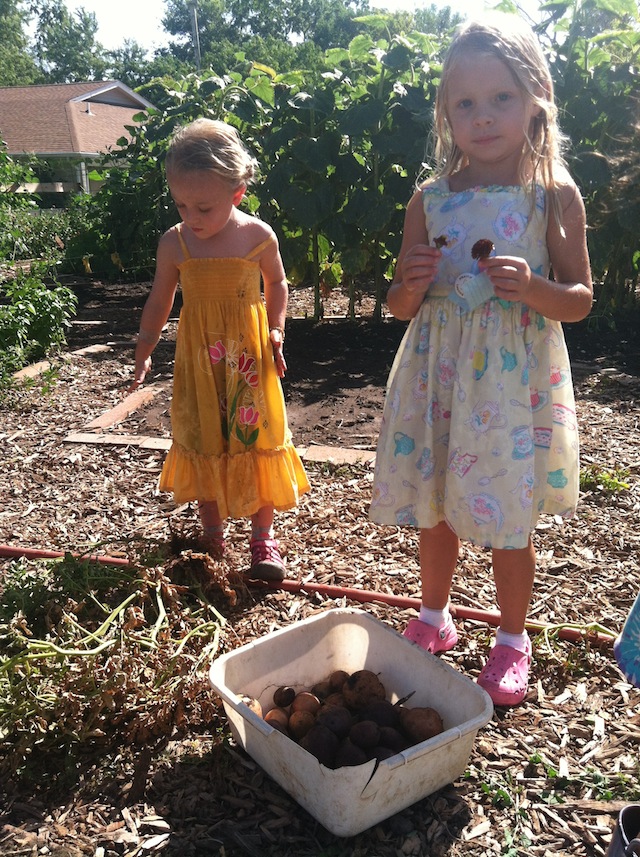
Q: One of our fondest memories of our time at Prairie Hill, was of a boy named Henry. How is he? (The image we have emblazoned in our minds is of him showing us how to tie his shoelaces at the age of two.)
Henry is a joy! He is eight years old and is looking forward to being a “third year” in the younger elementary this year. He loves working on research projects with others, writing, and moving his body.
My younger son Charlie is five and will be in his third year of the primary community. He enjoys collecting beautiful rocks or finding bones for a “museum” that he and some friends established and set up near the duck pond at PH.
Q: Can you describe your path to Montessori?
A: Since I was nine years old, I loved the idea of being a teacher. I used to make up activities and games for my younger brother. My last year of high school I taught at a camp and was reminded that I love to be around children. I studied elementary education and early childhood development at the University of Nebraska-Lincoln. I had very good professors and embraced the “constructivist” philosophy of education.
I was introduced to Montessori briefly through a class at UNL and was interested in knowing more. When I first stepped into the primary classroom at PRAIRIE HILL, located in a historic farmhouse, I was hooked. I loved the environment and was intrigued by the materials. After working at PH during summer camp, I was inspired by the philosophy in action. The children were aware of their environment and themselves, kind, self-regulating, and confident. I knew I wanted to be a part of this secret of childhood that Montessorians knew how to foster.
I worked the next few years at PRAIRIE HILL as an assistant in several different communities ranging from the Young Children’s Community (18 months to 3 years old), Primary, and Elementary. I also traveled to Australia and Europe to see international schools for children, both mainstream and Montessori.
After college graduation, I worked as an assistant in another Montessori school and enrolled at the Montessori Training Center of Minnesota. It was excellent. My trainer, Molly O’Shaughnessy did a wonderful job of teaching us and sharing her passion. She is an outstanding leader and advocate for children. Since then, I’ve been at PH with a wonderful group of children, colleagues and families.

Q: In our estimations, learning doesn’t just about inside the classroom. It can happen anywhere. Can you describe how Prairie Hill exemplifies this idea?
A: PRAIRIE HILL provides opportunities for children based on their development needs for contributing to and experiencing the world. The children who are younger than six regularly “go out” on our farm to feed animals, water plants, pick vegetables and fruits from our gardens and orchard, deliver food or give message to other communities, explore the woods, etc. all as a part of their daily work.
The children older than six take part in adventures here on the farm as well but also out among the broader Lincoln area community. They go to hardware stores, universities, bakeries, etc. to learn about the way the world works and to gather information or materials they need. The older elementary students prepare and serve food monthly to a kitchen outreach center for people in need. They plan and go on camping trips to nearby states each year. Some years, they also take longer/ bigger trips to learn more about history or current events/opportunities.
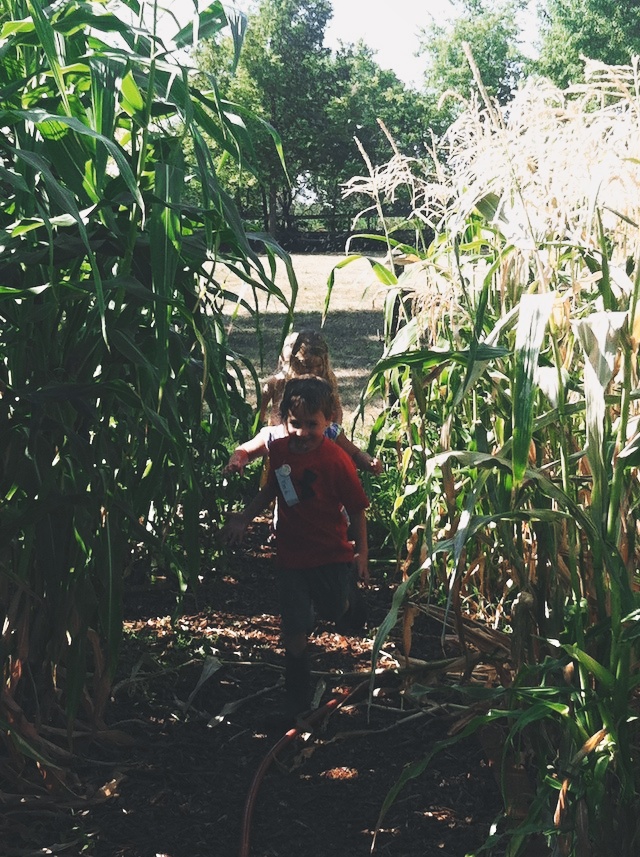
Q: Okay, a tough question: What does Montessori mean to you? What does it mean to your students? What does it mean to your family?
A: To me, Montessori means continuously observing and analyzing children and their surroundings. It means reviewing the writings of Dr. Montessori as well as current research on development, culture, and education. It means putting forth the extra effort to advocate and work hard on behalf of children, even in difficult or discouraging times. It also means working with a warm community of amazing people with passion to help create wonderful experiences for the children of the world.
To the students, I think it means that they are surrounded by adults who trust that children have a natural way of developing and revealing themselves to the world and supporting them in that process. We respect and care deeply for them and work to remove obstacles on their behalf. We strive to foster optimal living and learning experiences. These experiences aren’t always the ones that are the fastest, easiest, or most entertaining for children but the ones they need in order to have for the self-mastery they desire and for the grace and courtesy they need when working with others.
For my family, as most families, we want to find that balance between freedom and responsibility in the home. Both my husband and I know that it can be very easy to “over parent” and not let our children make mistakes. We remind ourselves that it’s important to let them fail and then go over what happened and talk about lessons learned from those experiences. We also try and give them space and time, not always running around as a family or having TVs or computers constantly in use, to enjoy the pleasures of simply being with one another.
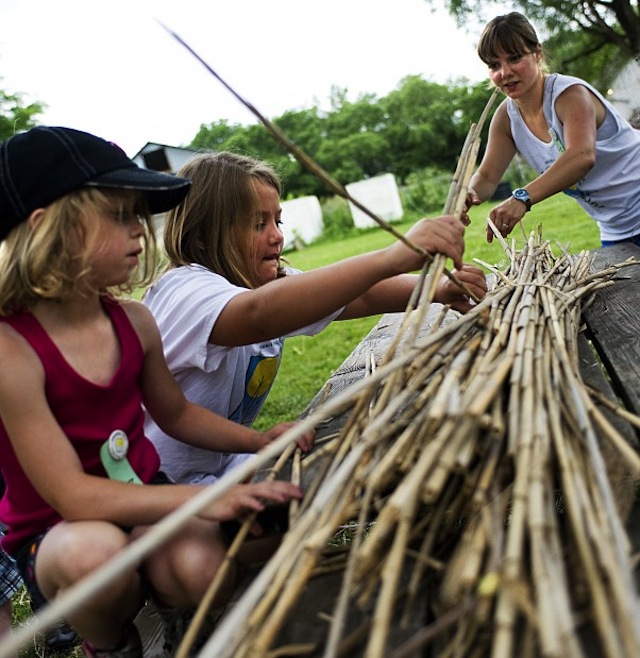
Q: What’s your favorite Montessori quote?
A: “Our method takes into account the spontaneous psychic development of a child and assists it with means drawn from observation and experience. If physical care enables a child to enjoy the pleasures of a healthy body, intellectual and moral care introduces him to the higher pleasures of the spirit and urges him on to new insights and discoveries both in his external environment and and the intimacy of his own soul. These are the joys which prepare a man for life and which are the only ones that are really suitable for the education of children.” – The Discovery of the Child
Q: Where do you see Montessori in the next 100 years?
A: I think mainstream education will naturally gravitate more to the wisdom that Montessori provides. I hope that 100 years from now mainstream education will include mixed ages, more focus on the inward preparation of the teachers, and more attention to how to guide children in a more holistic and empowering way.
Q: What are your hobbies?
A: I always love good conversation around a great meal! I enjoy traveling, yoga, reading, bike riding with my family, and spending time with family and friends.
Q: Have you read any good books lately?
A: I really liked “A Sense of an Ending” by Julian Barnes and am currently enjoying “Unbowed,” A memoir by Wangari Maathai.
Q: What life lessons have you learned from Montessori?
A: Be present and be patient.
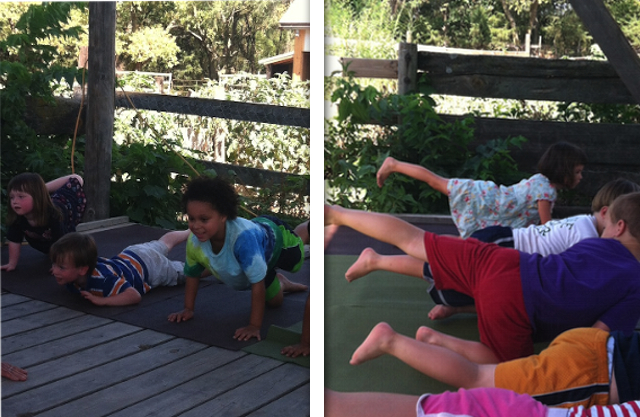
Q: Do you have advice for other Montessori guides?
A: I would encourage observing other Montessori environments/ schools twice a year, attend conferences, and revisit Montessori writings and your albums. Also, some kind of regular relaxation practice or something that fills you up to be able to keep giving is very important.
We hope you enjoyed, Spotlight Prairie Hill.
Written by:
Baan Dek
